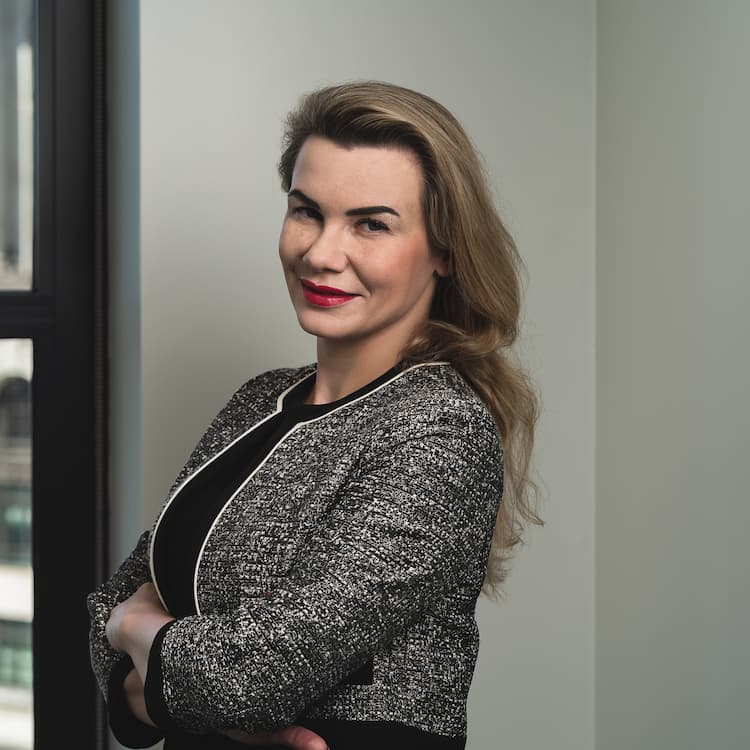Compliance
Sanctions Dangers In The Art World

Art market players, including advisors and dealers who travel abroad, must be more attuned to the ever-shifting regulatory landscape in the battle against laundering illicit funds.
The world of fine art and collectables has had to get more
used to the sort of compliance controls that have been imposed on
more conventional financial services. And, at a time when
sanctions have been imposed by the West on Russia, and certain
other select nations, the pain points can be particularly
important. In this article, Angelika Hellweger, legal director at
Rahman
Ravelli, the international law firm based in London, explores
the intersection of fine art and sanctions.
The editors are pleased to share these insights. The usual
disclaimers apply to guest content. Email tom.burroughes@wealthbriefing.com
A high-profile art collector has had all his assets frozen due to
allegations that he uses his collection to launder money for the
Lebanese group Hezbollah.
Nazem Ahmad has been placed on the UK’s sanctions list – and
faces charges in the US – due to claims about the way he uses his
collection, which includes works by the likes of Antony Gormley,
Pablo Picasso and Andy Warhol.
The UK action against him is the first use of powers to designate
an individual under the Counter Terrorism (Sanctions) (EU Exit)
Regulations 2019, which are in place to target those who the
Treasury has reasonable grounds to suspect are involved in
terrorist activity.
The diamond and art dealer, who has not yet been located, had
already been placed on a US sanctions list in 2019. The US has
accused him of being a major donor to Hezbollah since 2016. A New
York court has now charged him and eight others, including his
son and daughter, with defying his sanctioned status by
conducting art and jewel transactions worth a total of $160
million since 2019.
The UK’s announcement of sanctions against Mr Ahmad describes him
as a suspected financier of Hezbollah, a religious political
movement backed by Iran that the UK government classified in its
entirety as a terrorist group four years ago. All of his UK-based
assets have now been frozen, and the UK art world has been
prohibited from trading with him or six named companies linked to
him.
Mr Ahmad is accused of using art to shelter and launder money for
the purposes of terrorism. The art world is seen as attractive to
money launderers as it often functions in a discreet, very
private way and items can be sold across borders without arousing
the suspicion of the authorities.
In addition to this, the art, antiquities, and cultural objects
market is a complex landscape – and one that had a global value
of $65.1 billion in 2021. The trend is towards greater
regulation, with states putting in place regimes that place
anti-money laundering and combating the financing of terrorism
(AML and CFT) obligations on those participating in the art
market.
Recent developments have shown that sanctions compliance for art
market participants is a focus of the enforcement authorities.
Only recently, federal prosecutors in New York subpoenaed several
auction houses for years of sales records as part of ongoing
efforts to identify violators of Russian sanctions.
In order to ensure that they are not exposed to civil and/or
criminal liability, individuals or businesses conducting activity
in, or around high-risk jurisdictions have to develop a robust
understanding of the sanctions' regulations in place, and the
relevant obligations placed upon them.
There are rapid changes and frequent updates to the sanctions
lists produced by the UK’s Office of Financial Sanctions
Implementation (OFSI), the US Office of Foreign Assets Control
(OFAC), the European Union and the United Nations. This makes it
essential for art businesses to closely monitor announcements and
developments in government legislation.
Sanctions screening is important and enables checks to be made on
the ownership structures of companies. Those conducting such
checks should keep comprehensive records of them to show that all
efforts have been taken to ensure compliance with sanctions
regimes. Enhanced due diligence checks (including checks with
Companies House) before onboarding a new client or agreeing to
new business are vitally important – as they are during ongoing
business relationships. It is important to understand the full
range of activity and the persons involved in any supply chains.
Enhanced due diligence should certainly be considered by shop
owners, insurers, transporters, and storage facility
companies.
The need to comply with the sanctions wherever one conducts
transactions should also be recognised. This is particularly
relevant for art advisors and dealers who travel from one country
to another for fairs or other events. Such travelling can often
mean that an art market participant needs to increase the scope
of checks: not only to cover the sanctions list in their home
country, but also the list in the jurisdiction in which the
transaction takes place – and possibly where the client is based.
About the author
Angelika Hellweger is a specialist in international,
high-level economic crime investigations and large-scale
commercial disputes. As a multilingual lawyer she represents
corporates and conglomerates across Europe, the Middle East,
Africa and the US. Her experience and understanding of all
aspects of white-collar crime have led to her representing
corporations in multijurisdictional investigations and in some of
the most complex commercial litigation.